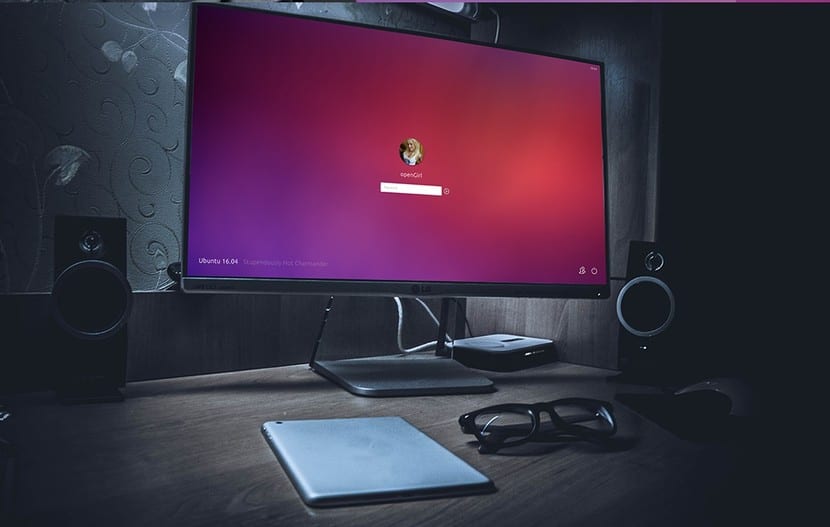
The end of 2017 has not been very good for the Ubuntu team and for the Canonical distribution in general. Although Canonical is one step closer to IPO, its distribution is increasingly away from home computers.
Recently an error has appeared within Ubuntu 17.10 that makes the BIOS of certain Lenovo and Acer computers unusable and in some cases like a real brick. A bug that remains unsolved and has even caused Ubuntu remove the Ubuntu 17.10 ISO image.
The bug report was sent at the end of November, but only a few days later when the Ubuntu team realized the situation and began working with Lenovo to find a solution. It has quickly been discovered the problem that caused this bug, apparently related to the distribution kernel. So the Ubuntu guys have updated the distribution kernel, but things are still unsolved.
Ubuntu recommends installing Ubuntu 16.04.3 and not Ubuntu 17.10
On the one hand, to this day, the Ubuntu download website still doesn't show Ubuntu 17.10 ISO download, recommends Ubuntu 16.04.3; on the other hand, in Launchpad, it is claimed that updating the kernel fixes BIOS problems, but Lenovo claims that affected computers have no solution.
If you are one of those users affected by this bug, there are two official solutions. Either we change the motherboard of the computer and install the latest BIOS updates for that computer and then install Ubuntu or another Gnu / Linux distribution; or, if we are expert users, We go Underground and use tools that will help revive the BIOS and install the latest security patch that Lenovo has released. In any case, it seems both Ubuntu and Lenovo wash their hands of the affected users, leaving the solution to them. At least for the moment…
Lenovo again, last year it was the Lenovo Yoga that did not allow to install GNU / Linux or any internal hardware.
A brand to avoid.
It is not only lenovo, in an asus gl something that I had did not leave me any distribution based on debian that I tried, but based on arch if, and with the hp that I have now it gives problems when installing and when shutting it down it hangs and I have to keep the power button, but you can.
I read that it is something related to NVMe, and coincidentally, those two laptops have m.2 slot
In theory this problem should not affect Mint since the last stable distribution (SYLVIA) works with the 16.04 kernel but I wonder what will happen with the next one if they base it on Ubuntu 17.10?
Linux Mint is based only on LTS versions. The next one will be based on Ubuntu 18.04
When hardware can be "broken" by software it means that the hardware is badly designed and not compatible.
It happened to me on an hp with i5 fourth generation and I had a gt840 after installing Ubuntu 16.04 gnome in my case, I wanted to put Windows to sell it and I couldn't. The BIOS crashed, it didn't let me boot or anything. I threw it away, I didn't have any solution.
It is always ubuntu, in short there is manjaro, debian, fedora, opensuse my favorite, centos etc. .. From my own experience I have done better with distributions based on rpm packages and, with the original deb packages which is debian.
I think the problem is not with Ubuntu 17.10 but with the Kernel that it carries, I use Linux Mint (which is based on Ubuntu 16.04.3) and after updating the Kernel the BIOS was damaged ... So what I have to do is no never update to kernel 4.13 and do not install any distortion that carries it.
THE WAR of the OS, the paid ones and the Open Source, the paid ones $ are getting out of hand, no more gigantic profits, it's over, the bubble burst, what have they done with so much money? The future is going towards there, they should work more together, the same as what happened with the transgenic problem, same problem, same solution. Result: Monsanto had to be sold to competitor Bayer, The same will happen with the OS, the big fish eats the smallest, the damaged ones: consumers, people on foot, we only have to take a box to see how far they will go, sanity and ethics: nothing, 0.
If memory does not fail, this is the first time that something of this dimension has happened. Totally in agreement with Manuel Nervión, for a software to burn the BIOS firmware is because that version of Kernel offered by Ubuntu had very serious flaws. In practice, nothing: for Lenovo it is totally clear that it does not recommend or recommend GNU / Linux (no other trademark does either), nor Ubuntu (nor any other distribution or applications) will be responsible for damage to equipment when this is the case. its installation.
They are the risks we run. I thank the gods that I have had no problems with my ASUS. I am very good. I am very sorry for those affected.
Update: the problem also affects several versions of the Toshiba Satellite and Dell Inspiron, it also seems that it is associated with Intel chips, there are no records so far of affectations to AMD.
Hello,
Does anyone know if Ubuntu 18.04 has the same problems?